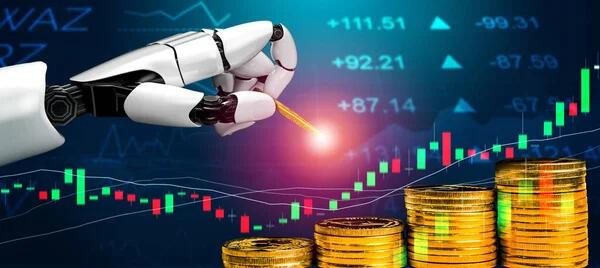What is Forex Trading?
Forex trading, also known as foreign exchange trading, is the act of buying and selling currencies on the foreign exchange market. The forex market is the largest financial market in the world, with a daily turnover exceeding $2 trillion. This market is characterized by high liquidity, rapid transactions, and significant price fluctuations, making it an attractive option for traders looking to profit from currency movements.

One of the key features of forex trading is its 24-hour availability. The forex market operates around the clock, allowing traders to react quickly to news and events that may impact currency prices. Whether it's early morning or late at night, forex traders can participate in trading activities and take advantage of opportunities as they arise.
In forex trading, currencies are traded in pairs, such as EUR/USD or GBP/JPY. When you buy a currency pair, you are essentially buying one currency and selling another. The goal is to profit from changes in the exchange rate between the two currencies. Traders can take long positions (buy) if they believe a currency will appreciate or short positions (sell) if they expect it to depreciate.
Key Points:- Forex trading involves buying and selling currencies on the foreign exchange market.
- The forex market is highly liquid, with daily turnovers exceeding $2 trillion.
- Traders can participate in forex trading 24 hours a day, reacting quickly to market news and events.
- Currencies are traded in pairs, with the goal of profiting from changes in exchange rates.
- Traders can take long positions (buy) or short positions (sell) based on their market expectations.
What is Futures Trading?
Futures trading involves the buying and selling of contracts that obligate the parties to transact a specific asset at a predetermined price and date in the future. These contracts are standardized and traded on organized exchanges, such as the Chicago Mercantile Exchange (CME) or the Intercontinental Exchange (ICE). Futures trading allows traders to speculate on the future price movements of commodities, financial instruments, or stock market indices.
Unlike forex trading, which focuses on currency pairs, futures trading involves a wide range of underlying assets, including commodities like gold, oil, and agricultural products, financial instruments, and economic indicators. Traders can take long positions if they expect the price of the underlying asset to rise or short positions if they anticipate a price decline.
Futures contracts have expiration dates, at which point the parties are obligated to fulfill the terms of the contract by either delivering or receiving the underlying asset at the agreed-upon price. Futures trading provides market participants with opportunities to hedge risk, speculate on price movements, and diversify their portfolios.
Key Differences:| Forex Trading | Futures Trading |
| Focuses on currencies | Includes a variety of assets |
| Operates 24 hours a day | Traded during exchange hours |
| No expiration date | Contracts have expiration dates |
How Does Forex Differ from Futures Trading?
When comparing forex trading to futures trading, there are several key differences that traders should be aware of. One of the primary distinctions between the two markets is the range of assets available for trading. While forex trading focuses exclusively on currency pairs, futures trading includes commodities, financial instruments, and stock market indices, offering traders more diverse trading opportunities.
Another notable difference is the operating hours of the two markets. Forex trading operates 24 hours a day, allowing traders to participate in trading activities at any time. In contrast, futures trading is conducted during exchange hours, limiting the availability of trading opportunities to specific time frames.
Additionally, futures contracts have expiration dates, which forex trades do not. This means that futures traders must close their positions or roll over contracts before the expiration date to avoid physical delivery of the underlying asset. In contrast, forex traders can hold their positions for as long as they wish without worrying about contract expirations.
Summary:- Forex trading focuses on currencies, while futures trading includes a variety of assets.
- Forex trading operates 24 hours a day, offering continuous trading opportunities.
- Futures contracts have expiration dates, requiring traders to manage positions before maturity.
Which Market is Right for You?
Deciding whether to trade forex or futures depends on your trading preferences, risk tolerance, and investment goals. If you prefer the flexibility of round-the-clock trading and focus on currency pairs, forex trading may be the right choice for you. On the other hand, if you are interested in trading a broader range of assets, such as commodities or stock market indices, futures trading could be more suitable.
It's essential to consider factors such as market liquidity, volatility, and trading hours when choosing between forex and futures trading. Both markets offer unique opportunities for traders to profit from price movements, hedge risk, and diversify their portfolios. By understanding the differences between forex and futures trading, you can make an informed decision on which market aligns best with your trading strategy.
Have Questions or Comments?
Do you have any questions about forex trading, futures trading, or the differences between the two markets? Feel free to leave your comments below and share your thoughts with us. We welcome your feedback and look forward to engaging with you on this exciting topic!
Please indicate:COINLIVEBASE » How Does Forex Differ from Futures Trading?